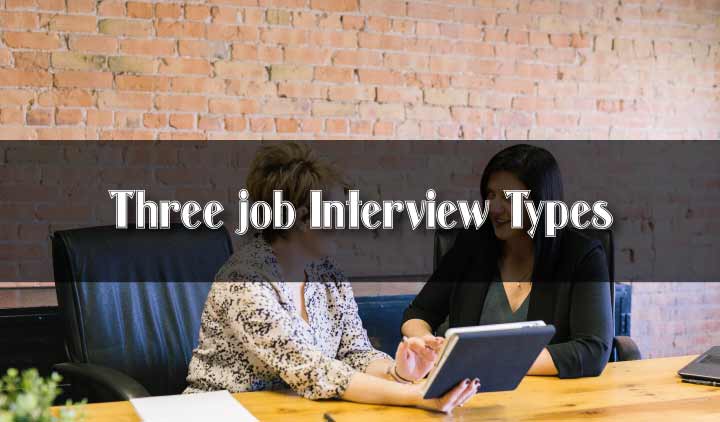If you’re at the end of your PhD and on the job hunt like I am, you’ve probably read articles on keeping yourself organised or how to improve your professional etiquette. You may even have completed mock interviews for various industries.
Regardless of your status, it is important to remember that applying for and interviewing for jobs is a learning process. There is no substitute for experience; no replacement for the real anxiety of selling yourself before an unknown audience; and no consolation for your detailed study of an organisation, only to find out that the questions asked are more behavioural in tone.
Nevertheless, there are three types of job interview techniques you may encounter during your search. Each one has telltale signs which, when you identify them, can help you adapt in the moment. Here are some tips to bear in mind.
The open-ended “ask”
At first, I thought these were interviews conducted by people who did not know what they were doing. They consist of very broad questions such as “So, how would you do X or Y job?”.
The answers to these must show your knowledge not only of the organisation’s programme or division, but the current state of that programme in its evolution. Where does it need to improve? In what areas is it deficient? Does it have too many resources allocated to any one of its activities?
In these questions, the employer is not probing your skill set, but rather, your value proposition (the two are different). They want to know how you would pick up the activities left pending by their previous employee, and if there is a benefit to hiring another in that given division.
Companies are constantly trying to cut costs and become more efficient, so each time an employee moves on, there is a period of questioning the very position itself. I have found that these types of interviews are most common when organisations are contemplating an expansion or contraction, which are excellent moments to make an entry.
OPT Resume Blast to Advertise your Resume in front of 1000’s of Employers
Study the programme that you’re applying to beforehand and identify its strengths and weaknesses. Pose questions to the interviewers: are they meeting their numbers? Do they struggle with certain elements?
The “wheel alignment”
These interviews revolve around specific tasks such as writing reports, planning an event, managing a budget, performing outreach or establishing partnerships. The idea is to measure to what depth each candidate has worked in such areas. In this way, the most aligned candidate can be made an offer.
If the job is mid-level, you will need to elaborate on work tasks that you have performed beyond their basic stages. For example, not just creating social media or web content, but devising a long-term plan for its evolution; not just reconciling company expenses, but establishing guidelines for such expenses across divisions.
In my experience, the best preparation for these interviews comes from applying to state or federal jobs. Wheel alignment interviews tend to occur for positions that have well-defined responsibilities, specific work items and cyclical deadlines. They often consist of prompts such as: “Explain in detail the extent to which you have used X, Y or Z skill.”
Be prepared to write some online essays for these kinds of jobs. Indeed, alignment questions are some of the most reflective you will find. But they are also some of the most useful, since answering them equips you with a deeper narrative for each one of your particular skills. You can later use these narratives across all interview types.
The “one-two punch”
Usually, this comes in the form of two interviews: one with a representative from human resources, another with the person(s) with whom you will be working or to whom you will report.
The HR chat will be about “getting to know you better,” which translates into giving a biographical portrait about how your previous positions motivated you to take your next step with their organisation. They are the most emotion-based interviews you will experience, and they are often associated with very mission-driven institutions, where there must be a sort of culmination in the new hire’s skill development.
On your part, you must show how you have evolved, how your prior employment has fostered certain skills, and how this new employment will continue to develop them or cultivate new skills.
For these, try to focus on connections. Link your skills from previous jobs and think about how the new position will challenge them. Reveal some of your frustrations or desire to try new things that weren’t possible in previous jobs.
Coming from academia, I often highlight how the project-based workflow there repeats itself in the new organisation, while adding the benefit of greater team collaboration. A favourite is to mention how I have leadership and motivational skills that would go to waste in a lone professorship.
But beware of demeaning prior jobs. Always follow up by returning to the connections: the autonomy, public speaking and research expected of a PhD also make you an adept self-starter and a “quick study” in new environments.
In a word, you are adaptable – and adaptability is perhaps the number one skill you will develop in both your job search and the new position that is waiting for you.
Source:- http://bit.ly/2K18XWN
Disclaimer:- https://bit.ly/2S00nLJ
SUBSCRIBE TO OUR LATEST UPDATES
[newsletter_signup_form id=1]

